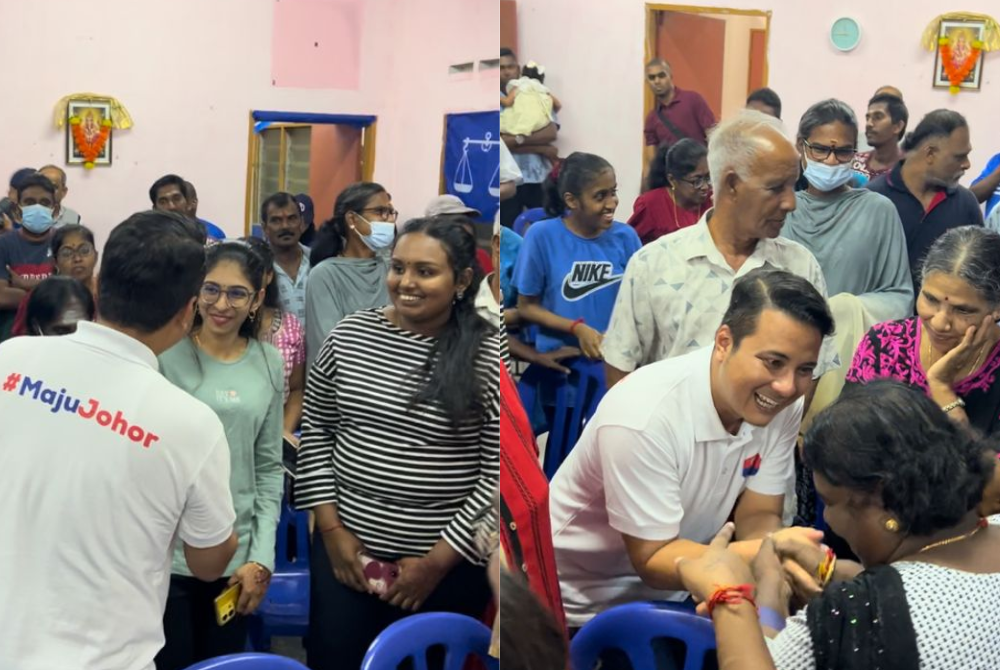KLUANG - The Kluang Indian community is calling for urgent action to address the shortage of job opportunities in the region, placing this concern at the forefront of their demands ahead of the upcoming Mahkota by-election.
As the local economy faces increasing challenges, many in the community are urging the next assemblyman to prioritise job creation and grassroots engagement.
Sowmiya Nadarajan, a 32-year-old sales consultant, expressed her frustration about the limited employment options in Kluang, especially for those with higher education qualifications.
"Job-wise, Kluang is lacking. We can't find work that matches our qualifications, and it’s tough.
"I have a diploma in Human Resources, but I couldn’t secure a job in that field here," she told Sinar Daily at a 'Meet and Greet' event with Barisan Nasional (BN) candidate Syed Hussein Syed Abdullah.
Sowmiya also said the increasing trend of young people leaving Kluang for better opportunities in Singapore is due to the lack of local job prospects.
"Most youngsters are heading to Singapore for work because they can’t find jobs here.
"I hope this issue is addressed, and we see more job opportunities for the youth in Kluang," she added.
The issue is not just affecting younger generations but also retirees like K. Sumasundram, a 65-year-old former police personnel, who shared similar concerns about the shrinking job market and rising living costs.
"In my time, things were different. Now, youths are struggling with price hikes, low salaries, and a lack of jobs," he said.
Sumasundram also called for more opportunities for the Indian community in government sectors, such as the Public Works Department (JKR), and a wider quota for Indian representation.
The upcoming Mahkota by-election is seen as a crucial moment for the community, with many residents eager for more involvement from the next assemblyman at the ground level.
Rajan Naidu Raja Gopal, a 55-year-old resident of Taman Makmur, stressed the need for the winning candidate to engage more closely with the local Indian community.
"Only when the assemblyman is on the ground, interacting with us, can they truly understand the problems we face and figure out solutions.
"For example, students who can’t afford transportation need assistance, and we also need support for essential items during cultural celebrations like Ponggal,” Rajan said.


